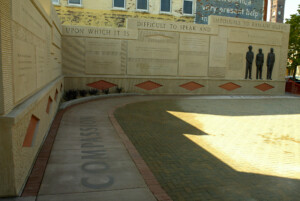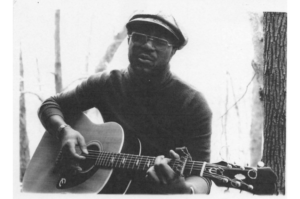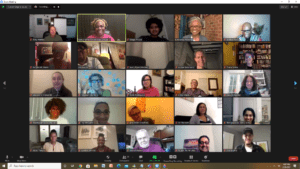
The legacy of white violence is insidious to our country, north and south. Our anti-racist organizing principles invite us to learn from history and undo racism. Learning from history requires us to unearth painful, important stories.
In Duluth, MN, for many years, the story of a lynching that occured there in 1920 was told mostly in whispers, and behind closed doors. To racial justice organizers in Duluth, it would be impossible to move forward without addressing the killing of Elias Clayton, Elmer Jackson and Isaac McGhie.
The three Black men were workers on a circus that was visiting Duluth. One night, they were falsely accused of assaulting a white woman and arrested. While they waited at the jail, angry white members of the community took to the streets, marching towards the jail. The officers at the jail were told not to respond with force, and members of the mob entered the jail, and forced the three men outside, where they were beaten and hanged. As was common at lynchings, white people gathered to watch and posed for photographs with the bodies of the men who were brutally killed. There was no justice, or honoring of Elias Clayton, Elmer Jackson and Isaac McGhie. They were buried in unmarked graves, and the white community quickly buried the memory.
The People’s Institute North was part of a committee, chaired by Henry Banks and Catherine Ostos, that worked to bring this history to the present by way of a memorial honoring the three men. The memorial was created on the corner of where the lynching took place.
For the unveiling, The People’s Institute for Survival and Beyond supported the organizing of a march and bringing a second line band from New Orleans.
To learn more about the history and the memorial, please see this article, originally published in the Ripsaw, and a short documentary by Twin Cities Public Television.
— Thanks to Sheryl Boman, longtime core trainer-organizer with PISAB, for sharing the organizing history.
As we all navigate this current moment, we take strength in the commitment of anti-racist organizers from around the country. Recently, an organizer shared testimonials

February 17th marks the anniversary of Dr. Jim Dunn’s transition to the village of the ancestors. Jim was the co-founder of The People’s Institute for

Join us for our Regional Undoing Racism® Workshops. These are our virtual offerings for community attendance. If you are interested in attending a workshop in